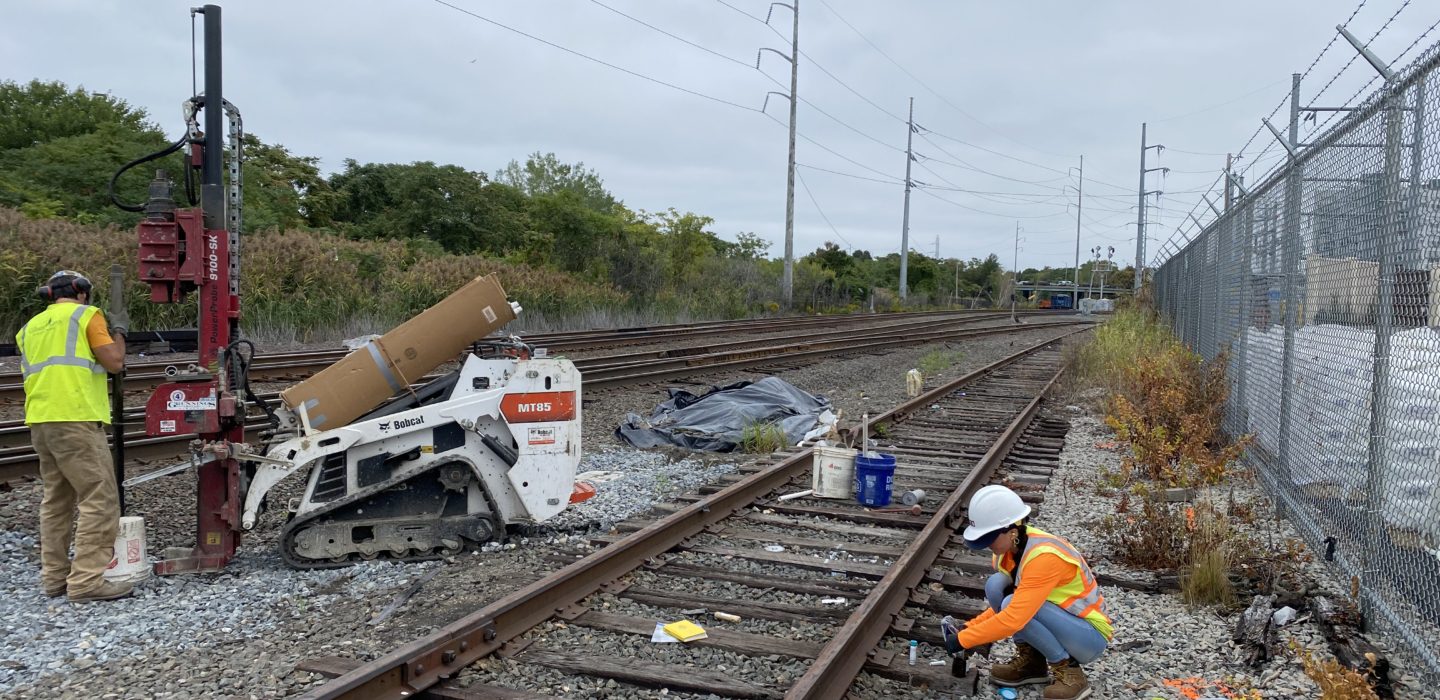MBTA PTC/ATC Program
Various Municipalities in Massachusetts
BETA, as a subconsultant to HNTB Corporation, continues to provide a variety of environmental consulting services in support of the installation of Automatic Train Control (ATC) signal infrastructure in and along the MBTA commuter rail right-of-way (ROW) at multiple locations throughout Massachusetts. The MBTA commuter rail ROWs abut or in some cases traverse areas with known and potential environmental concerns, including Superfund sites, MassDEP disposal sites, and areas of historic industrial use. Services performed include Licensed Site Professional (LSP) services, MCP and CERCLA regulatory compliance, and construction oversight.
Services provided include environmental review of existing documents, recommendations to address potential or confirmed contamination conditions and environmental health and safety for construction workers, preparation of soil management plans (SMPs), environmental health and safety plans, MCP Release Abatement Measure (RAM) Plans and Completion Reports, Permanent Solution Statement, SMP and RAM oversight, full LSP and MCP services for newly detected MassDEP MCP “releases” (RTNs 3-37544 and 3-37581), preparation of EPA Work Plans and Completion Reports, and Work Plan compliance oversight.
BETA staff have prepared LSP opinions summarizing environmental concerns and recommended soil management procedures and environmental health and safety precautions at over 25 locations throughout the ERML and WRML ROWs of the commuter rail system, including Industriplex Superfund Site, GE Lynn MCP disposal site, Everett Junction (historic industrial area), and FX West (Commuter Rail Maintenance Facility). In addition, BETA conducted subsurface investigations to pre-characterize potential areas of concern and to delineate the nature and extent of contamination for RTNs 3-37544 and 3-37581.
In the four years BETA has been providing LSP Services in support of the PTC/ATC Program, environmental permitting related to the project was kept off the critical path ensuring no project delays due to environmental permitting issues.


